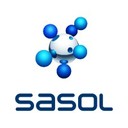Visteon
Global Gen AI Developer
Job Description
At Visteon, the work we do is both relevant and recognized—not just by our organization, but by our peers, by industry-leading brands, and by millions of drivers around the world. That’s YOUR work.
And, as a truly global technology leader in the mobility space, focused on building cross-functional AND cross-cultural teams, we connect you with people who help you grow.
So here, whatever we do is not a job. It’s a mission. As a multi-billion-dollar leader of disruptive change in the industry, we are shaping the future, while enabling a cleaner environment. No other industry offers more fast-paced change and opportunity. We are in the midst of a mobility revolution that will completely change the way we interact with our vehicles, reduce the number of car accidents and fatalities, and make the world a cleaner place.
Visteon is at the epicenter of this mobility revolution.
Two major trends in the automotive industry – the shift to electric vehicles and vehicles with autonomous safety technologies – have created unique opportunities for Visteon. We are the only automotive provider focused exclusively on cockpit electronics – the fastest-growing segment in the industry.
And our team is ready for YOU. To show the world what you can do. Detailed description: Seeking a highly organized and proactive Project Operations Manager to join our team. This role is pivotal in overseeing the validation, coordination, and execution of requirements for our HR and Legal systems. The successful candidate will act as a liaison between various stakeholders, manage project development activities, and ensure timely and effective communication across teams.
Global Gen AI Developer
Enabling a software-defined, electrified future.
Visteon is a technology company that develops and builds innovative digital cockpit and electrification products at the leading-edge of the mobility revolution. Founded in 2000, Visteon brings decades of automotive intelligence combined with Silicon Valley speed to apply global insights that help transform the software-defined vehicle of the future for many of the world’s largest OEMs. The company employs 10,000 employees in 18 countries around the globe. To know more about us click here.
Mission of the Role:
Facilitate Enterprise machine learning and artificial intelligence solutions using the latest technologies Visteon is adopting globally.
Key Objectives of this Role:
The primary goal of the Global ML/AI Developer is to leverage advanced machine learning and artificial intelligence techniques to develop innovative solutions that drive Visteon’s strategic initiatives. By collaborating with cross-functional teams and stakeholders, this role identifies opportunities for AI-driven improvements, designs and implements scalable ML models, and integrates these models into existing systems to enhance operational efficiency. Following development best practices, fostering a culture of continuous learning, and staying abreast of AI advancements, the Global ML/AI Developer ensures that all AI solutions align with organizational goals, support data-driven decision-making, and continuously improve Visteon’s technological capabilities.
Key Performance Indicators:
-
Model Accuracy and Performance: Track deployed ML models’ accuracy, precision, recall, and F1 scores to ensure they meet performance benchmarks and deliver reliable predictions.
-
Deployment Efficiency: Measure the time taken to deploy ML models from development to production, ensuring a streamlined and efficient deployment process.
-
Scalability and Integration: Evaluate the scalability of ML models by monitoring their performance under varying loads and their integration with existing systems. KPIs could include the number of integrated data sources and the efficiency of data pipelines.
-
Innovation and Research: Track the adoption of new ML/AI techniques and technologies, participation in industry conferences, and contributions to research publications or internal knowledge-sharing platforms.
-
Model Maintenance and Updates: Monitor the frequency and effectiveness of model updates and maintenance activities to ensure that models remain accurate and relevant.
-
Training and Knowledge Transfer: Assess the effectiveness of training programs and knowledge transfer by tracking team members’ proficiency in ML/AI development and the adoption of best practices.
-
Business Impact: Measure the impact of ML/AI solutions on business outcomes, such as increased revenue, cost savings, or improved operational efficiency. Use metrics like ROI (Return on Investment) or specific business KPIs to evaluate success.
-
Compliance and Ethics: Ensure compliance with data privacy regulations and ethical standards by monitoring adherence to data governance policies, bias mitigation strategies, and transparency in model decision-making processes.
-
Customer Satisfaction: Collect feedback from internal stakeholders or clients to evaluate their satisfaction with ML/AI solutions. Use metrics like Net Promoter Score (NPS) or customer satisfaction surveys to identify areas for improvement.
Key Year One Deliverables:
-
Current State Assessment and Documentation: Conduct a thorough evaluation of the existing AI/ML infrastructure, including data sources, models, platforms, and governance practices. Document findings and identify areas for improvement.
-
Stakeholder Needs Analysis: Collaborate with key stakeholders to understand their requirements, challenges, and priorities for AI/ML solutions. Gain a comprehensive understanding of business objectives and user needs.
-
Roadmap and Strategy Development: Develop a strategic roadmap for AI/ML implementation that aligns with organizational goals. Prioritize initiatives based on business value, feasibility, data availability, technical constraints, and resource needs.
-
Prototyping and Proof of Concept: Create prototypes or proof of concept solutions to demonstrate the potential of AI/ML in addressing specific business challenges or opportunities. Validate technical feasibility and gather stakeholder feedback.
-
Governance Framework Establishment: Establish and implement a governance framework for AI/ML development and usage, including data security policies, access controls, data quality standards, and change management processes.
-
Training and Enablement Programs: Design and deliver training programs to enhance the skills and capabilities of team members and end users in AI/ML development, best practices, and data analysis techniques.
-
Model Development and Deployment: Develop and deploy high-quality AI/ML models to meet critical business requirements. Ensure models are accurate, scalable, and aligned with user needs.
-
Integration with Existing Systems: Integrate AI/ML solutions with existing data sources, applications, and systems to create a unified analytics environment. Ensure seamless data flow and interoperability between AI/ML models and other platforms.
-
Documentation and Knowledge Sharing: Document AI/ML solutions, best practices, and lessons learned to facilitate knowledge sharing and promote reusability across the organization.
-
Performance Measurement and Reporting: Establish performance metrics and reporting mechanisms to track progress against key objectives and KPIs. Provide regular updates to stakeholders on the status of AI/ML initiatives and their impact on business outcomes.
Qualification, Experience and Skills:
Technical Skills:
-
Expertise in machine learning frameworks (e.g., TensorFlow, PyTorch), programming languages (e.g., Python, R, SQL), and data processing tools (e.g., Apache Spark, Hadoop).
-
Proficiency in developing, training, and deploying ML models, including supervised and unsupervised learning, deep learning, and reinforcement learning.
-
Strong understanding of data engineering concepts, including data preprocessing, feature engineering, and data pipeline development.
-
Experience with cloud platforms (preferably Microsoft Azure) for deploying and scaling ML solutions.
Business Acumen: Strong business analysis and ability to translate complex technical concepts into actionable business insights and recommendations.
Key Behaviors:
-
Innovation: Continuously seeks out new ideas, technologies, and methodologies to improve AI/ML solutions and drive the organization forward.
-
Attention to Detail: Pays close attention to all aspects of the work, ensuring accuracy and thoroughness in data analysis, model development, and documentation.
-
Effective Communication: Clearly and effectively communicates complex technical concepts to non-technical stakeholders, ensuring understanding and alignment across the organization.



